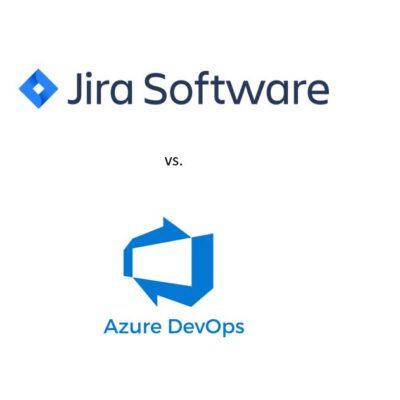
It’s a tale as old as time, or at least as old as Star Wars. I have “gone to the dark side” of project management platforms by dipping my toes in the Azure DevOps pool (spoiler alert, come on in! The water is fine). And while these two platforms can even be integrated with one another in some cases, who doesn’t love a good old-fashioned product comparison from a not at all biased standpoint.
Coming from a hybrid marketing and technology background, I had exclusively used Jira (or, briefly, other non-Azure DevOps platforms) in the past when managing projects, both web and otherwise. I had just started getting the hang of it (or as much as one can get a hang of something as vast as a tool like Jira), when I joined a project that was already using Azure DevOps. Since joining Perficient, I have noticed that Jira vs. Azure DevOps can be a fiercely debated topic. I am by no means an expert with ADO… yet, but I wanted to take the time to share some thoughts. Here are my observations from the first month using Azure DevOps as a project management platform, at least as it compares to Jira.
Jira vs. Azure DevOps: The Differences
Looking at each of the respective websites, Jira states “How agile teams build and support world class software”. I think the key words here are “agile teams”. Jira seems to fit the true sense of agile a bit better than Azure DevOps. Moving over to the Azure site, they state “Plan smarter, collaborate better, and ship faster with a set of modern dev services”. What caught my eye here was “plan smarter”. I think ADO’s strengths lie in projects that are planned well from the forefront and don’t require as much change during the project. Jira excels at allowing teams to manage a project from start to finish, allowing for flexibility in adding key initiatives, features and functionalities. Azure DevOps is much better when it comes to laying out the end-to-end development of specific features of a fairly pre-defined project.
Jira allows for subtasks to be added to a story, similar to how Azure DevOps allows for PBI’s to be broken up into tasks. That said, I have found that Azure makes it much easier to consume and visualize what team member is working on what, and what status each task is in.
Jira’s interface seems to be much more intuitive when shifting priorities, and navigating between current sprint, upcoming sprints and backlog items. Azure seems to require more jumping between different views to accomplish this.
Which One “Wins”?
Each platform has its pros and cons, and it truly depends on the project or needs in a project management solution. For a software or web development project, where it is well defined what the product being developed is, I think Azure takes the cake. For a broader project that may have many changes, additions or subtractions along the way, I think the flexibility of Jira probably makes it a better choice.
In some debates I’ve seen on this topic, it seems that business-minded users tend to prefer Jira, while development-minded folks tend to prefer Azure DevOps, but as with all of the subject matter of this post, that is simply an observation.
If you have thoughts on this topic, I’d love to hear them! I have a lot to learn, especially as it pertains to ADO. And regardless of which platform you prefer to use or not use, keep in mind that Perficient is here to help your digital and web teams make a difference and elevate your digital customer experience to the next level.
